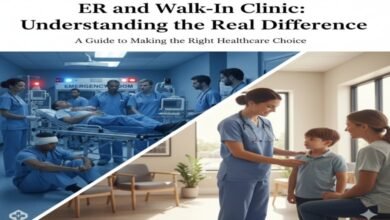Geriatric Dentistry: Addressing the Unique Oral Health Needs of Older Adults

As the population ages, the importance of geriatric dentistry grows, and seniors require specialized oral healthcare. Geriatric dentistry focuses on addressing the unique dental needs of older adults, taking into account the complex interplay between oral health and systemic conditions. Our experienced Easton, MA dentist and team are dedicated to providing compassionate, comprehensive geriatric dental care, tailored to the distinct requirements of seniors.
From managing dry mouth and tooth decay to addressing periodontal disease and oral cancer, our goal is to enhance the quality of life, dignity, and overall health of our older adult patients.
The Aging Population and Oral Health
The global population is aging rapidly, with significant implications for oral health. Older adults face unique oral health challenges, which can impact overall health, quality of life, and dignity.
Oral Health Challenges
- Tooth Loss and Edentulism: Leading to difficulties with eating, speaking, and self-esteem.
- Periodontal Disease: Linked to systemic conditions like diabetes, cardiovascular disease, and dementia.
- Dry Mouth (Xerostomia): Caused by medications, radiation, or systemic diseases.
- Oral Cancer: Increasing risk with age, especially in smokers and drinkers.
- Dental Caries: Root and coronal caries, exacerbated by dry mouth and inadequate oral hygiene.
Systemic Health Connections
- Diabetes: Uncontrolled diabetes increases the risk of periodontal disease.
- Cardiovascular Disease: Periodontal disease linked to increased cardiovascular risk.
- Dementia: Oral health issues may contribute to cognitive decline.
- Nutritional Deficiencies: Poor oral health impacts nutrient intake and overall health.
Social and Economic Factors
- Access to Care: Barriers include transportation, mobility, and financial constraints.
- Social Isolation: Limited social support impacts oral health habits.
- Economic Disparities: Inequitable access to dental care and resources.
Principles of Geriatric Dentistry
Geriatric dentistry is built on several core principles:
- Patient-centered care: Understanding the individual’s needs, values, and priorities.
- Interdisciplinary collaboration: Working with healthcare professionals to address systemic health issues.
- Preventive approach: Emphasizing oral health maintenance and disease prevention.
- Comfort and dignity: Prioritizing patient comfort, dignity, and quality of life.
Geriatric Dental Care Strategies
Providing optimal dental care for older adults requires a tailored approach, to addressing their unique needs and challenges. Here are effective geriatric dental care strategies:
Preventive Care
- Regular Dental Check-Ups: Scheduled every 3-6 months.
- Oral Hygiene Instruction: Emphasizing proper brushing and flossing techniques.
- Fluoride Varnishes: Applying fluoride to prevent tooth decay.
- Dental Sealants: Protecting teeth from decay.
Restorative Dentistry
- Dental Implants: Replacing missing teeth for improved function and aesthetics.
- Dental Bridges: Restoring chewing function and smile.
- Dentures: Customized to ensure comfort and fit.
- Tooth-Colored Fillings: Restoring teeth with durable, aesthetic materials.
Periodontal Care
- Periodontal Evaluations: Assessing gum health.
- Scaling and Root Planing: Removing plaque and tartar.
- Antibacterial Therapy: Managing periodontal infections.
Oral Cancer Screening
- Visual Examinations: Regular screenings for oral cancer.
- Biopsy and Referral: When suspicious lesions are detected.
Dry Mouth Management
- Saliva Substitutes: Relieving dry mouth symptoms.
- Oral Moisturizers: Hydrating the mouth.
- Medication Review: Identifying dry mouth-causing medications.
Behavioral and Psychological Support
- Anxiety Management: Relaxation techniques and sedation dentistry.
- Cognitive Support: Adapting dental care for patients with dementia.
- Social Support: Encouraging social interaction and community engagement.
Interdisciplinary Collaboration
- Medical Consultations: Coordinating care with healthcare providers.
- Pharmaceutical Review: Monitoring medications’ oral health impact.
- Nutritional Counseling: Promoting healthy eating habits.
Final Words
Geriatric dentistry is a vital specialty that requires a compassionate, comprehensive, and interdisciplinary approach to address the unique oral health needs of older adults. By understanding the complex relationships between aging, oral health, and systemic well-being, dental professionals can develop effective strategies to promote healthy aging, improve quality of life, and enhance dignity for this vulnerable population. Through preventive care, restorative dentistry, periodontal management, and oral cancer screening, geriatric dentists can mitigate the risks associated with aging and oral health. Furthermore, collaboration with healthcare providers, caregivers, and community resources is essential to ensure seamless care coordination.
Looking for more informative posts about health? Explore our website today!




